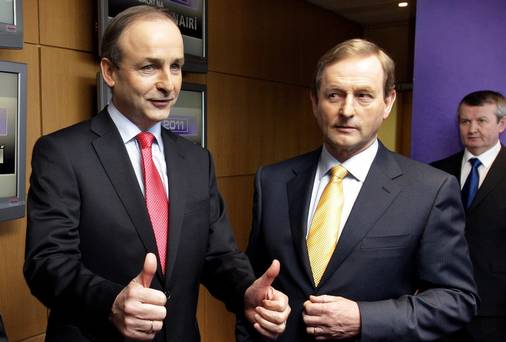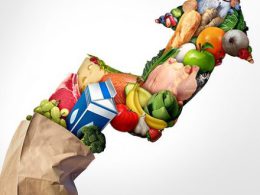By Kevin McLoughlin
Agri-food and drinks, the dominant Irish-owned exporting sector, has already been badly hit by sterling’s decline. A whopping 40% of all its exports go to Britain, meaning it’s very vulnerable to Brexit. The cuts planned to corporation tax in the US, Britain and other countries are also a direct challenge to Ireland’s reliance on Foreign Direct Investment.
Putting down his own marker, Micheál Martin recently said; “If we take these threats together what we face today may be even bigger than the recession we have recently come through. This is not about a conventional economic shock but a direct challenge to our core economic system. We must be radical in our response or suffer the long-term damage.”
A nervous establishment
The editorials of the papers reflect the establishment’s concern that this government is too weak and prone to compromise. Criticising it in early November the Irish Times said: “Economic recovery is well underway but it’s localised and under threat because of Brexit. Creating an expectation that a return to Celtic Tiger living standards, along with improved services, tax cuts and higher employment are within touching distance is disingenuous and wrong. Items on a wish list cannot all be afforded at the same time. Trade-offs will be necessary. And that will require public education and straight talking.”
And later, “This minority Government is incapable of taking difficult, unpopular decisions.”
Not only must the demands for wage increases be faced down, they say, so too the renewed calls – as healthcare disintegrates – for investment in proper public services. In fact what the establishment wants is a further shifting of wealth from working class people to the rich to compensate them for these new economic challenges. That means declining conditions and worsening economic and social inequality – the direct opposite of what the majority expect and demand.
To ensure their interests are safeguarded, the establishment wants Fine Gael and Fianna Fáil to co-operate like never before.
Some trade union leaders are as horrified as the government and bosses that militant strikes have led to important pay increases and want some new partnership agreement to hold back this new movement from below.
People are fed up with the constant promises of improvements tomorrow. Discontent is bubbling at the slow or non-existent progress on pay, on housing and homelessness, on healthcare, on abortion rights, on justice and equality. But, just as the anger is growing at the rationing of living standards and rights, the position of the capitalist establishment now facing a new crisis will be to reduce rations further. This points towards a major clash.
Political polarisation
Notwithstanding the compromising approach of some of the trade union leaders, the powerful impact of the water charges movement and the militant victories on pay cannot be wiped away by government rhetoric or media propaganda. Workers and trade unionists need to get organised and prepare to fight on all the issues.
The Dáil will reflect the polarisation developing among the classes. Fine Gael, Fianna Fáil, the Independent Alliance and Labour stand on one side and Anti-Austerity Alliance-People Before Profit and some left independents stand on the other; with Sinn Féin in the middle trying to be bridge an unbridgeable gap.
The AAA-PBP, of which the Socialist Party is a key part, needs to not only take the fight to the establishment parties in the Dáil but also must popularise the left, socialist alternative to the crisis of capitalism. It needs to prepare the ground for the launching of a new broad-based party for workers, women and young people to fight for a socialist government and change in this country.












